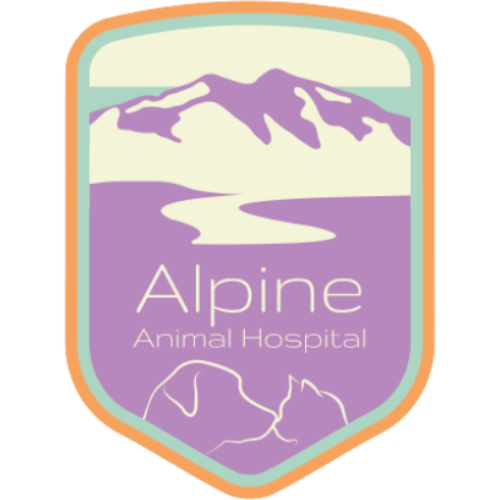As pet lovers we cherish our furry companions and strive to keep them safe and healthy. March is Poison Prevention Awareness Month, a crucial time to raise awareness about common hazards that can pose a threat to our furry family members. In this blog post, we’ll explore essential tips and precautions to help you safeguard your pets from potential poisons and ensure their well-being.
Understanding Common Pet Poisons
Household Products:
Many household items, including cleaning products, pesticides, and certain plants, can be toxic to pets if ingested or inhaled. Store these products securely out of your pet’s reach.
Human Medications:
Over-the-counter and prescription medications, such as pain relievers, antidepressants, and vitamins, can be harmful to pets. Always store medications in a secure location and never administer human medications to your pets without consulting a veterinarian.
Foods:
Certain foods, such as chocolate, grapes, raisins, onions, garlic, and xylitol (a sweetener commonly found in sugar-free products including chewing gum), can be toxic to pets. Keep these foods out of reach and avoid sharing them with your furry friends.
Outdoor Hazards:
Antifreeze, pesticides, fertilizers, and certain plants commonly found in gardens can pose a risk to pets. Even compost can make your pet sick. Be mindful of these hazards and take precautions to prevent exposure.
Tips for Preventing Pet Poisoning
Pet-Proof Your Home:
Conduct a thorough inspection of your home and remove or secure any potentially hazardous items. This includes household cleaners, medications, and plants that are toxic to pets.
Keep Medications Secure:
Store all medications, both prescription and over-the-counter, in a locked cabinet or medicine chest. Never leave medications within your pet’s reach, and ensure guests do the same when visiting. Be vigilant as you are taking medications to not drop pills on the floor.
Properly Dispose of Hazardous Materials:
Dispose of hazardous materials, such as cleaning products, batteries, and automotive fluids, safely and securely. Avoid leaving them accessible to pets or in areas where they can be easily knocked over.
Be Cautious with Foods:
Educate yourself and your family members about foods that are toxic to pets, and ensure they are stored securely. Dispose of food wrappers and packaging properly to prevent accidental ingestion.
Be Careful Outside:
Pets can get into things anytime. Be aware of your surrounds when you are out with your pet. Avoid trash, discarded food or areas where there is known or suspected contamination. There are old mine areas that may still contain heavy metals or other toxic substances that may be toxic to you and your pet. Stagnant water can also be an issue for toxins as well as parasites. Don’t rely on environmental water; carry water and a bowl for your pet if you are unfamiliar with the conditions where you are taking your pet.
Know the Signs of Poisoning:
Familiarize yourself with the signs of pet poisoning, including vomiting, diarrhea, lethargy, drooling, seizures, and difficulty breathing. If you suspect your pet has ingested something toxic, seek immediate veterinary care.
What to Do in Case of Poisoning
Contact Your Veterinarian:
If you suspect your pet has been poisoned, contact your veterinarian or an emergency veterinary clinic immediately for guidance. If for some reason a veterinary clinic is not available or you are traveling to the vet, call poison control for additional help. You may have to pay for their help, but they often provide valuable information that will aid your veterinarian in developing a treatment plan that will give your pet the best possible prognosis.
Collect Information:
Gather information about the substance your pet ingested, including the product name, active ingredients, and quantity ingested. Or better yet, take any information or packaging to the vet so the appropriate treatment can be found as quickly as possible. Time is crucial when poison/toxins are involved.
Follow Veterinary Instructions:
Follow your veterinarian’s instructions carefully, which may include inducing vomiting, administering activated charcoal, or providing supportive care. Depending on the type of toxicity, treatment may be simple or ongoing. Some treatments for toxins may require basic treatment or medication, other therapies may include hospitalization and supportive care. Again, time is key in a successful treatment and outcome for your pet. Do not wait to see if your pet gets sick, go to the vet immediately!
Protecting Your Pet Year-Round
Poison Prevention Awareness Month serves as a reminder of the importance of being vigilant year-round when it comes to protecting our pets from potential hazards. By taking proactive measures to pet-proof your home, educating yourself about common toxins, and knowing what to do in case of an emergency, you can help keep your furry friends safe and healthy. Together, let’s create a safer environment for our pets and ensure they live long, happy lives by our side.
If you have any questions or concerns about pet poisoning prevention, don’t hesitate to reach out to us; we’re here to support you and your pet’s well-being.
Stay safe and keep your pets protected!
The Team at Alpine Animal Hospital
970-963-2371
www.alpinehospital.com

